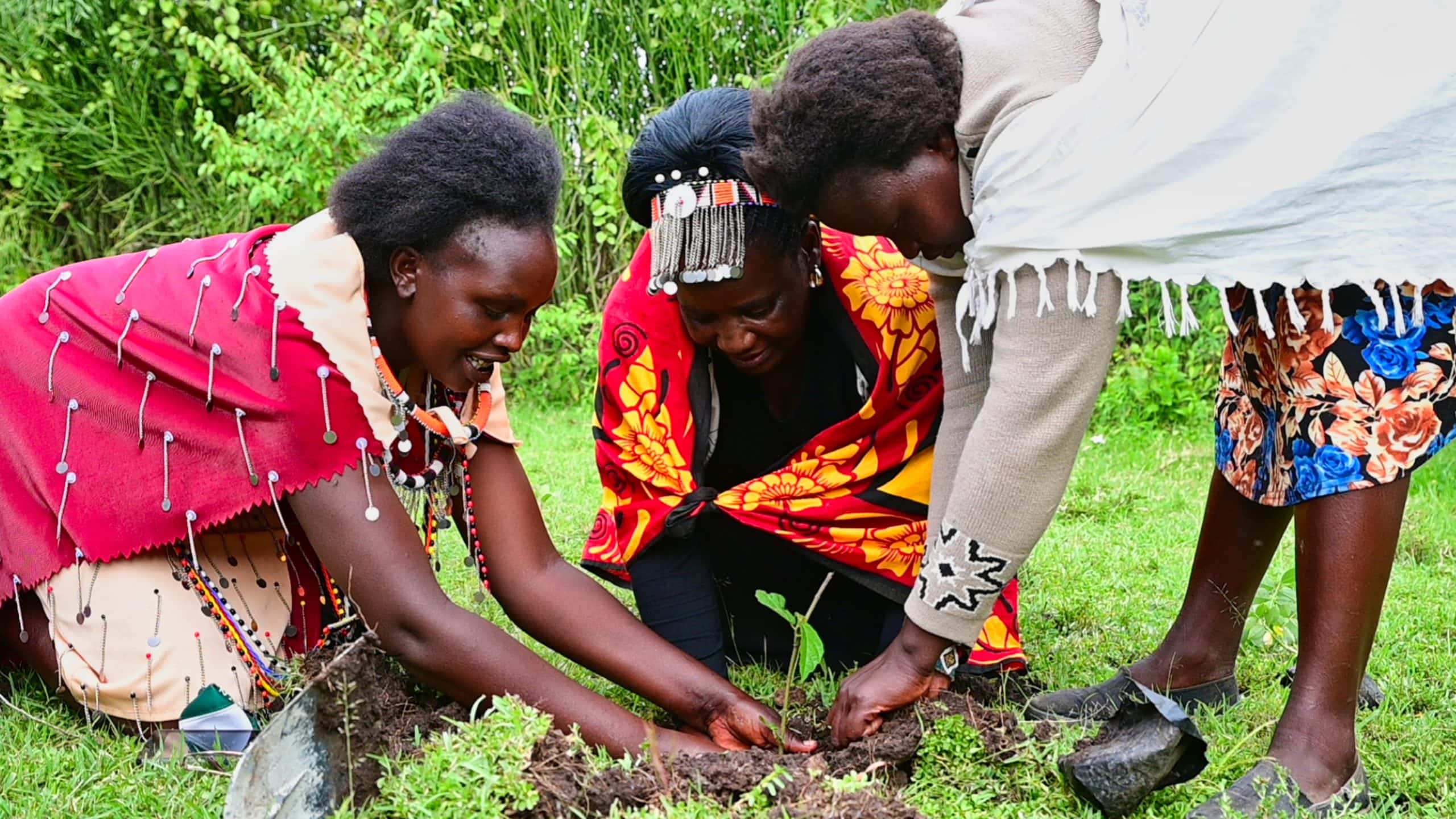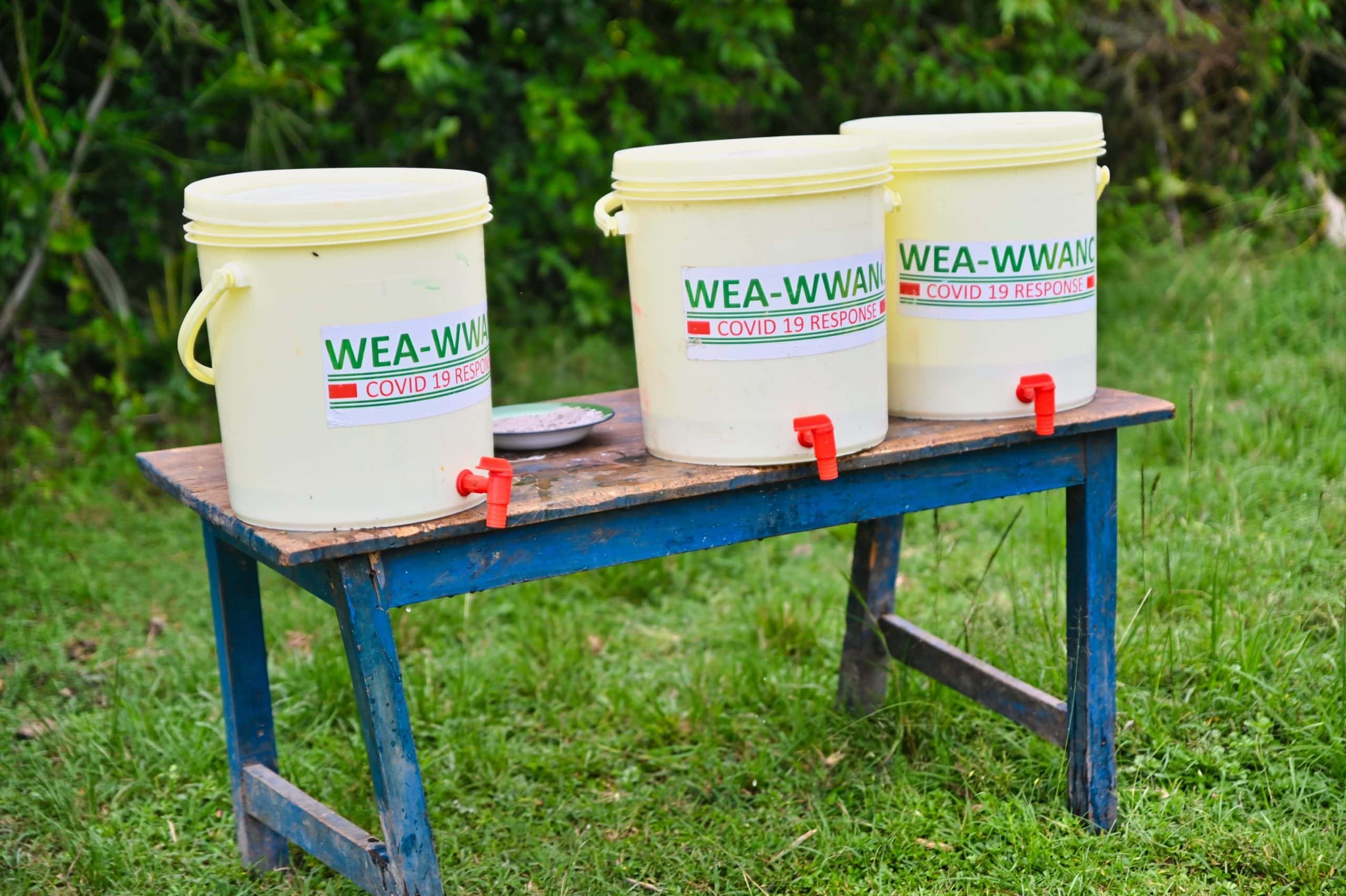Building resilience in the Maasai community

There are no communities in the world immune from the impacts of climate change and COVID-19. For members of the Maasai community in Kenya, these compounding crises have exacerbated the burden placed on women by existing inequitable systems and norms, particularly in regions where accessing food, fuel, or safe water (a responsibility held primarily by women) is already a daily challenge. Despite these challenges, WEA Alliance Leaders, like Noormishuki Chesengei are leveraging their position as caretakers of their families and communities to enact powerful change.
Noormishuki first joined WEA and WWANC’s Kenya Climate Resiliency Accelerator to support and accelerate her work in Maasai regions as a community health and gardening volunteer. She participated in the Accelerator along with fellow volunteers and participated in trainings in climate change, women’s roles in mitigation and adaptation, and environmental technologies. Together with her fellow volunteers, Noormishuki created an action plan to begin tree planting with her community to address the issues of erosion, flooding, rising temperatures, and food insecurity. After the training, Noormishuki and her group members returned to their community and created the Emayan Tree Nursery to provide tree saplings to their Maasai community members at cost, along with training for tree planting for climate resilience. With their action plan and Accelerator seed grant, the group constructed a greenhouse, purchased equipment and seeds, and kept some initial operating funds for water, electricity, and incidental costs according to their action plan and budget from the training.
The group has gone on to train and recruit other women to join Emayan Tree Nursery and has mobilized community members to plant thousands of trees in their farms and schools as a way to build community resilience in the face of climate change. They have also started three more tree nurseries and constructed a second greenhouse garden where they plant climate resilient crops and train community members in climate smart agriculture.
Watch Noormishuki and the WWANC team lead a tree-planting workshop during WEA's International Women's Day event below.
Then in March 2020, unprecedented flooding devastated Noormishuki’s Maasai community. They lost crops, animals, the tree nurseries, and more. Noormishuki and her five children were internally displaced, becoming refugees in their own community. On the heels of this climate disaster came the COVID-19 outbreak, adding pressure to an already compromised and outdated health care system and facilities.
Rather than wait for support to come from the top down, Noormishuki inspired her community with a plan of action based on the knowledge and skills she learned through the Kenya Climate Resiliency Accelerator. “We cannot rely on the government because...government interventions take ages to reach the ground; the solution is with us and within us.” She began organizing her community to create an action plan together, ensuring an indigenous response to COVID-19. Noormishuki raised awareness and mobilized women’s groups, community health workers, government officials, village elders and churches. Along with other women leaders in her community, she began making face masks and liquid hand washing soap to reduce the spread of COVID-19 and organized emergency relief.

Noormishuki recognizes that this critical work is a matter of survival for her community. Currently, she serves as a trainer in the WEA and WWANC COVID and Climate Resilience Initiative in East Africa and is bringing this solutionary approach to communities throughout Kenya.
